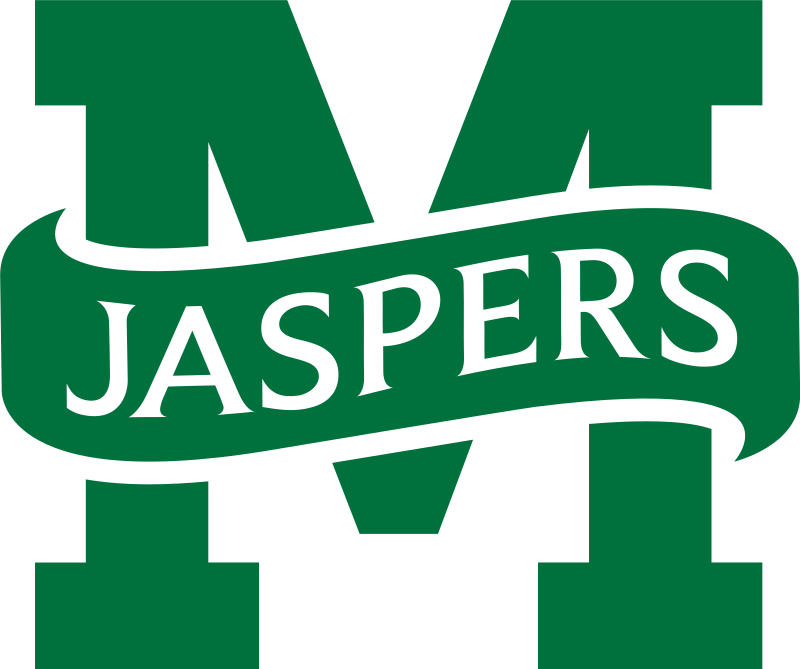MAAC Cancels Fall Sports Competitions
A decision on whether fall sport competition would be feasible in the spring will be determined by the presidents at a later date.
 Following a July 27th Council of Presidents meeting, the Metro Atlantic Athletic Conference (MAAC) has decided to cancel fall sports competition due to continuing health and safety concerns surrounding the global COVID-19 pandemic.
Following a July 27th Council of Presidents meeting, the Metro Atlantic Athletic Conference (MAAC) has decided to cancel fall sports competition due to continuing health and safety concerns surrounding the global COVID-19 pandemic.
"My heart goes out to our student-athletes, their coaches and their families as they receive word of this difficult and disappointing decision," said Manhattan College President Brennan O'Donnell. "In the end, however, our responsibility for the health and safety of our students and our entire community made cancelling fall intercollegiate competition the right thing to do."
A decision on whether fall sport competition would be feasible in the spring will be determined by the presidents at a later date. Athletically related activities and training opportunities for enrolled student-athletes will be structured in accordance with each institution's procedures and applicable state regulations.
"The decision to cancel fall sports comes with a heavy heart," said Director of Intercollegiate Athletics Marianne Reilly. "While we are disappointed, the health and safety of our student-athletes is always our first priority with everything we do. When it is safe for sports to play again, I know we will come back together strong, as OneManhattan. Until then, we will continue to make the student-athlete experience a memorable one for all our Jaspers."
MAAC Commissioner Rich Ensor notes that, "The fall sports impacted by the Council's decision include men's and women's soccer, women's volleyball, and men's and women's cross country and sports that conduct non-traditional season segments in the fall. The MAAC Executive Committee will explore with the Committee on Athletic Administration (COAA) the goal of providing the student-athletes with a schedule of contests among conference members in the spring of 2021 in accordance with each institution's procedures and applicable state regulations. It is the goal of the MAAC to ensure it recognizes a MAAC champion in each sport and it will review possible championship formats for the fall sports in accordance with evolving state and local regulations."
The MAAC Council of Presidents has pledged full advocacy on behalf of our student-athletes to work with the NCAA in the pursuit of any waivers that preserve lost opportunities because of these COVID-19 disruptions. The Collegiate Commissioners Association (CCA) is working with the NCAA on a series of waivers related to fall sports eligibility and competition.
Statement of the MAAC Council of Presidents:
The MAAC Council of Presidents and the Committee on Athletic Administration recognizes the disappointment that will undoubtedly be felt by student-athletes, fans, and supporters impacted by the cancellation of fall sports competition. It was clear during this process that the MAAC membership must focus its review on appropriate measures to ensure the health, safety and well-being of student-athletes, coaches, administrators, and the campus community which is the primary responsibility of its member institutions.
MAAC student-athletes whose seasons have been cancelled will still be permitted to train when they return to campus. Institutions will be responsible for implementing their own training guidelines in accordance with state and local COVID-19 regulations and guidance provided by the NCAA in its Resocialization of Collegiate Sport: Developing Standards for Practice and Competition including testing protocols.
The safety and wellbeing of MAAC student-athletes during the COVID-19 pandemic has been the conference's top priority dating back to the cancellation of the 2020 Hercules Tires MAAC Basketball Championships. In recent months, the MAAC has issued policy statements regarding the Resumption of Athletic Competition Principles and Return to Campus and Athletic Activity Action Plan for MAAC Institutions.
"The decision to cancel fall sports was made with student-athletes being top of mind," further notes Commissioner Ensor. "It is difficult to put into words how I feel for all of the student-athletes, coaches, and administrators who put in so much work on a daily basis. Health and safety protocols have been of the utmost priority the last several months, but unfortunately, there are too many factors that prohibit the MAAC and its institutions from safely delivering a competitive atmosphere that these individuals deserve."
Metro Atlantic Athletic Conference Council of Presidents
Rev. James J. Maher, C.M., Niagara University (MAAC President)
Patrick F. Leahy, Ed.D., Monmouth University (MAAC Vice President)
John J. Hurley, Canisius College
Mark R. Nemec, Ph.D., Fairfield University
Seamus Carey, Ph.D., Iona College
Brennan O'Donnell, Ph.D., Manhattan College
Dr. Dennis J. Murray, Marist College
Judy D. Olian, Ph.D., Quinnipiac University
Dr. Gregory G. Dell'Omo, Rider University
Eugene J. Cornacchia, Ph.D., Saint Peter's University
Christopher P. Gibson '86, Ph.D., Siena College
About the Metro Atlantic Athletic Conference:
With 11 institutions strongly bound by the sound principles of quality and integrity in academics and excellence in athletics, the Metro Atlantic Athletic Conference (MAAC) celebrates its 40th year of competition during the 2020-21 academic year. Current conference members include: Canisius College, Fairfield University, Iona College, Manhattan College, Marist College, Monmouth University, Niagara University, Quinnipiac University, Rider University, Saint Peter's University, and Siena College.